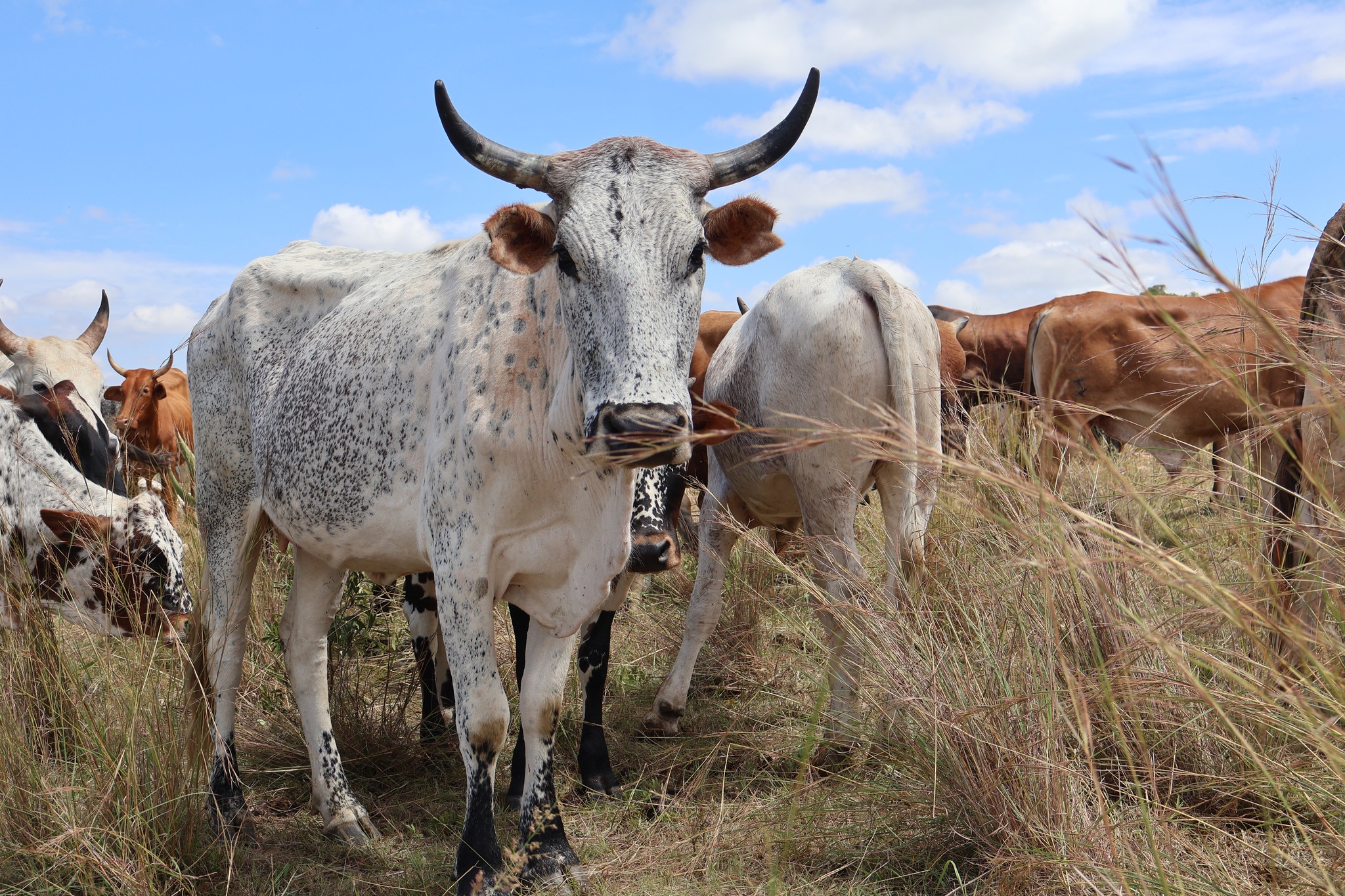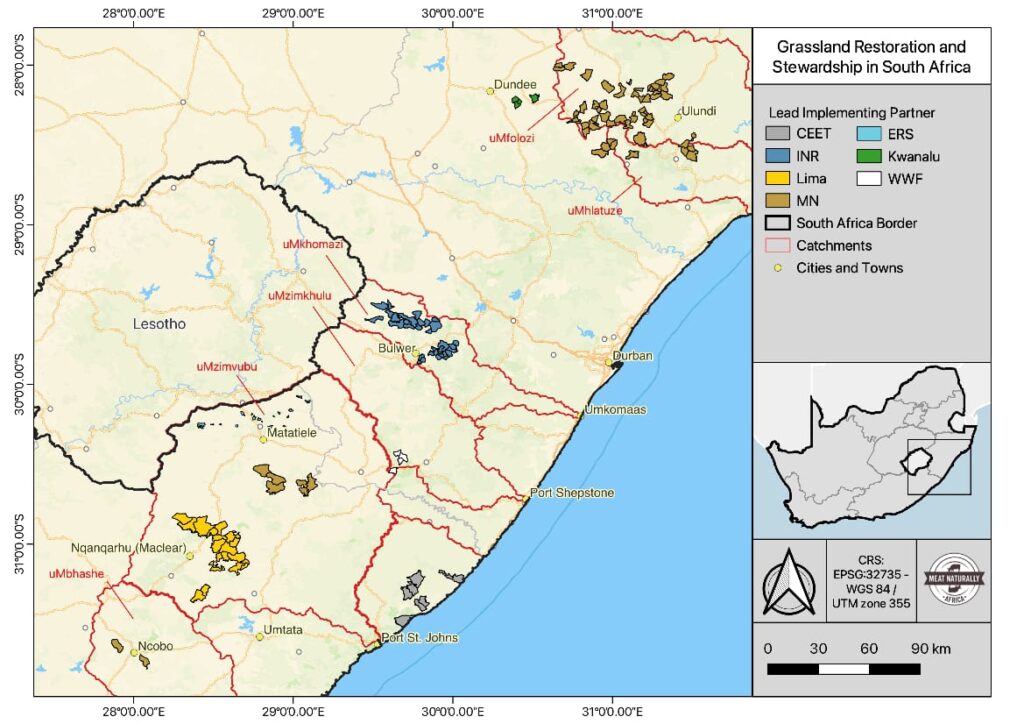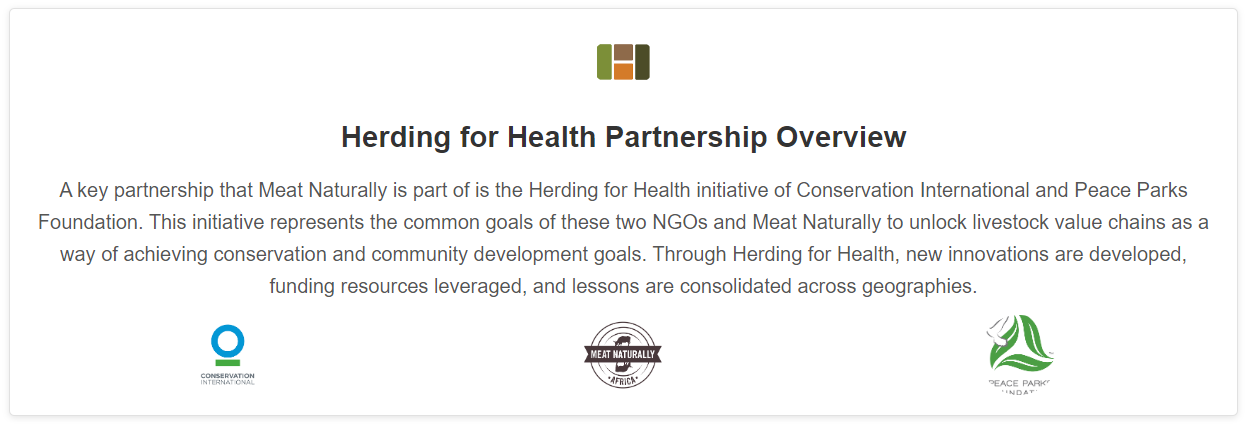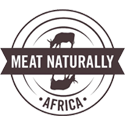Working Together for Economic and Environmental Prosperity
Meat Naturally aims to foster economic prosperity for small scale, emerging cattle farmers in Africa, accomplished in most cases through partnerships with NGO’s who become implementing partners. In many cases, NGO’s have built relationships and trust with communities in a specific area and have a history of engagement, but are looking for a livelihood’s upliftment tool or initiative, which Meat Naturally can provide.
Meat Naturally can provide the market access (through mobile auctions, mobile abattoirs or mobile sheering through MN Pty Ltd) and/or can provide the technical support. This support includes education/training for farmers and eco-rangers on a variety of topics, grazing planning, mapping services and contractual documentation. We also support NGOs and farming communities by offering access to vaccinations, bulk purchasing capabilities, tagging services, and a complete quiver of resources to make the programme work.
Each partnership arrangement can differ slightly in each area, depending on the needs and capabilities of the partners. But these are typically the different roles that Meat Naturally and an NGO play:
| Meat Naturally Provides |
|---|
| Farmer education on topics like regenerative grazing, livestock management, stock theft control, erosion control, grazing planning, animal nutrition, fodder production, and livestock disease detection and management. |
| Market access through mobile auctions, mobile sheep shearing, and mobile abattoirs. |
| Governance processes and contractual documentation through the Rangeland Stewardship Agreement that provides the governance processes that unlock the market access benefit. |
| Mapping services to inform and capture the grazing plan as well as veld condition and carbon sequestration monitoring services. |
| A carbon finance system and offering to sustain activities by communities involved in restoring their natural rangeland ecosystem. |
| What NGOs do |
|---|
| Lead all interactions with the Farmer's Associations and traditional authorities. |
| Promote participation and understanding of market access opportunities. |
| Facilitate training days (which MN or other partners deliver), support compliance monitoring, troubleshooting, and development of complementary initiatives that maximize community benefits from Rangeland Stewardship Actions. |
| Helping set up auction day arrangements with farmers. |
| Understand and support the rollout of the carbon offering, support community process to evaluate and make a collective decision on whether to pursue carbon finance. |
The MN team can supply NGO’S with tools (e.g. feasibility assessment framework, a rangeland stewardship agreement template); resources (handbooks and case studies of lessons learned in sustainable livestock farming, soliciting indigenous knowledge, and gender equity); and advice based on prior experience which extension officers employed by the NGO partners use, or MN can employ its own extension officers to implement the project on the ground and engage with the community.
Ingredients for success
The Meat Naturally model works best when farmers and NGO partners are working together to develop a long-term livestock farming business at the scale of a village grazing area that includes natural rangelands of at least 2500 ha and where animal numbers are more than 350. The understanding and support by farmers and implementing partner NGOs of the goal of developing a business, rather than being passive recipients of a project is crucial to successful implementation. Mobilisation at scale where the economics from livestock sales and carbon can sustain the stewardship farming actions and keep paying eco-ranger wages, is also critical to success. For sites that are smaller than 2500 hectares of natural rangeland (e.g. they graze on old croplands, or are just smaller village areas) or where livestock numbers are lower than 350 cattle (or cattle equivalents) MN encourages NGO partners to create umbrella associations that represent more than one community and can work together to achieve their independent sustainable farming and rangeland management activities as part of the Meat Naturally business.

Contact us today to learn more about our EcoRanger training, grazing planning, vaccinations and more
Feasibility Assessments
Before Meat Naturally begins implementation in a new area, once approached by an NGO or Implementation partner, the first step is to conduct a Feasibility Assessment. This is essentially an evaluation process used to determine the practicality, viability and potential success of the implementation of the proposed Meat Naturally initiative. It involves analysing various factors such as technical, economic, social, environmental, financial, legal, operational considerations, and others. After ascertaining these aspects, Meat Naturally is in a much better position to determine whether the project is likely to succeed or not, and whether to proceed with its initiation, and aligning the project with the needs and priorities of the community. The Feasibility Assessment framework is not a huge study, but rather a framework of information that Meat Naturally asks a potential NGO partner to gather in engagements with a community, farmers, and traditional authorities. As such, the Feasibility Assessment can generally be completed within 1 month.
Factors considered in a Feasibility Assessment:
- Biological priority & threats to biodiversity
- Vulnerability to climate change
- Historic livestock and rangeland management practices
- Resource rights
- Legal and policy context
- Informal vs formal livestock prices
- Availability of livestock product value-chain opportunities
- Implementor’s capacity
- Stakeholder and conflict analysis
- Implementation costs
- Financing opportunities
Our Latest Project Locations
Currently, we are working with 6 different implementing partners in KwaZulu-Natal and the Eastern Cape. In the Limpopo in the greater Kruger Park area we are working with Conservation South Africa, Kruger to Canyons Biosphere, and the Kruger National Park. New partners that have been through training with Meat Naturally and are initiating negotiations in other communities in other parts of South Africa are: Wild Trust, Birdlife SA, Care for Wild, and Ndlebenkomo Academy.

- Conservation Exposure, Education & Training (CEET) – Wild coast
- Institute of Natural Resources (INR) – Mkhomazi
- LIMA Rural Development Foundation (LIMA) – Tsitsa Sub-Catchment, Mzimvubu
- Meat Naturally NPC (MN) – Mhlathuzi-Mfolozi

Invitation to Collaborate
Are you an NGO or funder looking for a solution that will address land degradation and erosion, as well as restore biodiversity? Or are you working with communities that border game reserves or protected areas where there is a need for meaningful economic upliftment that can complement adjacent wildlife areas and conservation activities?
Please contact us to explore these possibilities further

